Food Security Depends on Protecting the People of our Food System
By Lura Roti for South Dakota Farmers Union
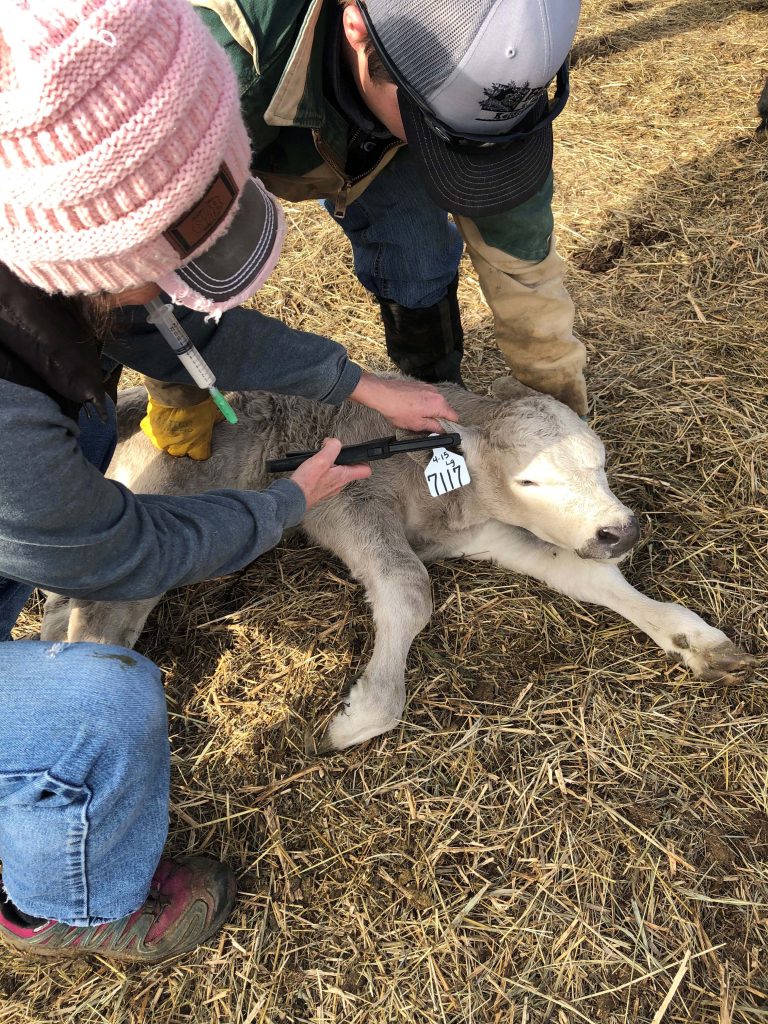
Rancher Danni Beer (left) tags a new calf with help of son, Bo on their Keldron, S.D. ranch, April 16. Beer is among South Dakota’s nearly 14,000 cattle producers. A recent Oklahoma State University study shows cattle producers have lost an estimated $247 per head due to COVID. Overall, the total beef cattle industry experienced a loss of $13.6 billion.
Food security isn’t something many thought about prior to COVID-19. But that’s changed.
“Empty grocery store shelves in Brookings or Sioux Falls speak to the fragility of even this sophisticated food system we are so proud of,” explained Barry Dunn, President of the state’s land grant, South Dakota State University.
During a March 31 interview, Dunn went on to say he was very concerned about what would happen to food security if COVID-19 infected a processing plant’s workforce. “As great as we perceive the food system in America, if the virus were to get into a packing plant, we would truly see how fragile the system could become.”

Sadly, this prophetic statement became reality. Within days of a few employees testing positive, Smithfield Foods, a pork processing plant in Sioux Falls, was forced to shutdown. As of April 15, 518 of the 3,700 employees tested positive for the virus and infected another 126 community members.
“People come first. We must take care of the people involved in our food system if we are going to maintain food security for this country,” says Doug Sombke, President of South Dakota Farmers Union and a fourth-generation family farmer. “The current system is more focused on packers’ lining their pockets than caring for the people responsible for getting the food to the table – farmers, ranchers and packing plant employees.”
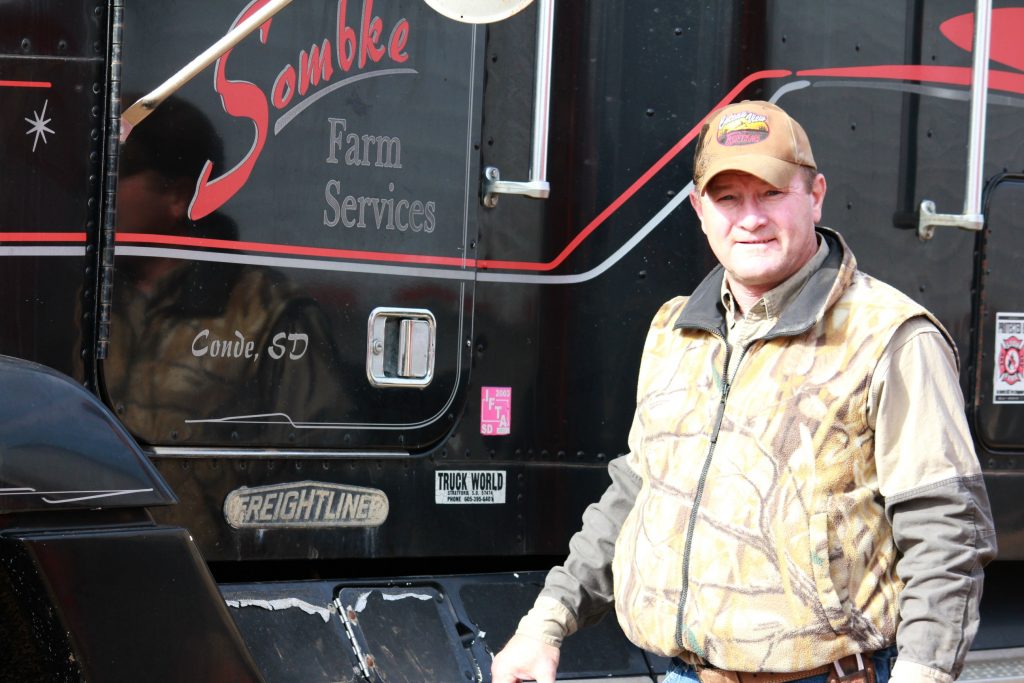
Sombke says Smithfield Foods should have done more to protect their employees. “Instead of paying employees a $500 bonus to work the month of April, they should have invested those dollars in protective measures.”
And he says more needs to be done to protect the livelihoods of farmers and ranchers raising crops and livestock. “COVID-19 is accelerating what was already a very depressed farm gate market,” says Sombke, who leads one of the state’s largest family farm and ranch organizations, 19,000 members strong. “Our family farmers and ranchers are going into the fifth year of a financial crisis, driven by the 2015 repeal of country of origin labeling (COOL), a trade war and lack of anti-trust oversight resulting in price gouging.”
Going into 2020, many of South Dakota’s nearly 14,000 cattle producers weren’t anticipating profits. Many were simply hoping to break even. Then, COVID hit, and as of April 9, an Oklahoma State University study shows cow/calf producers began losing an estimated $247 per head. Overall, the total beef cattle industry experienced a loss of $13.6 billion.
What consumers need to understand is, in order for farmers and ranchers to do what we do – raise food – we need to be able to stay in business.”
Danni Beer, KELDRON CATTLE RANCHER,
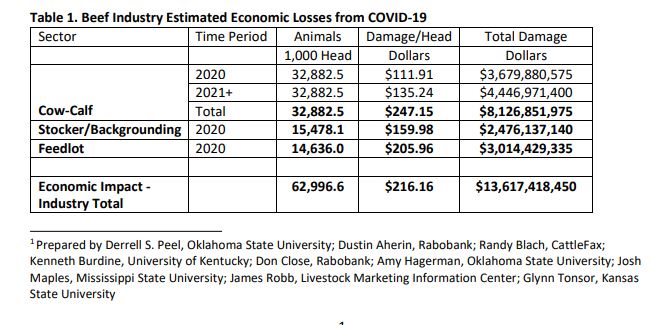
“What consumers need to understand is, in order for farmers and ranchers to do what we do – raise food – we need to be able to stay in business,” explains Keldron cattle rancher, Danni Beer.
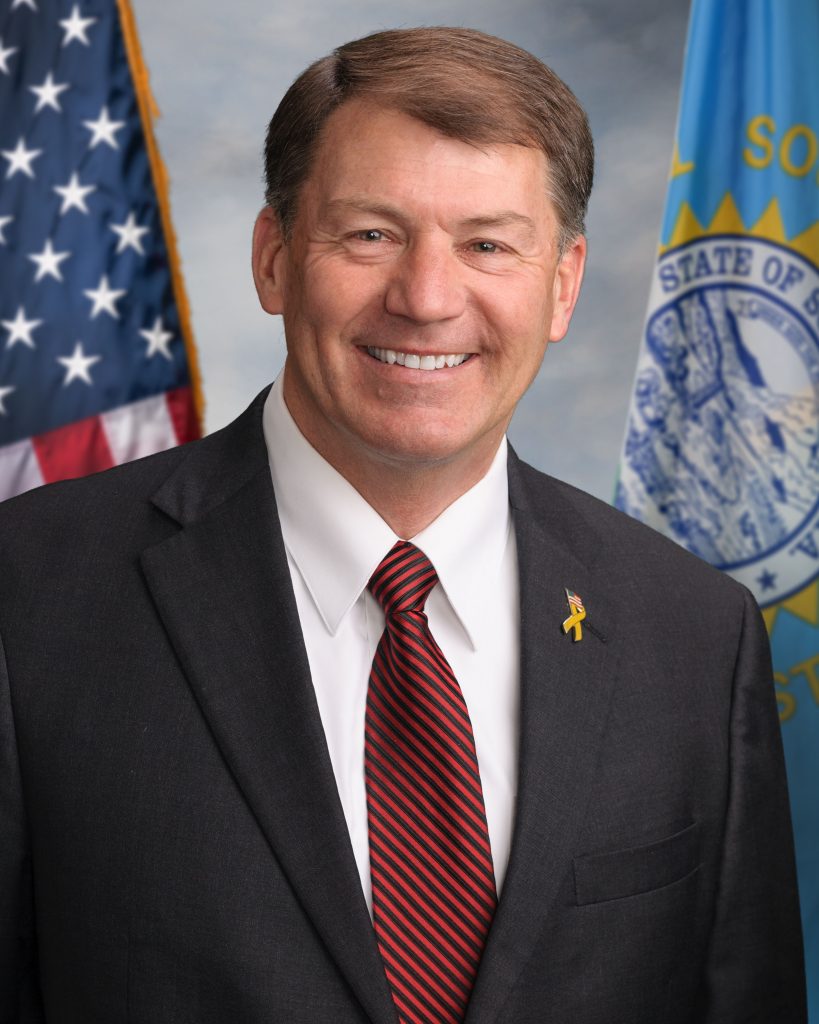
Protecting farmers and ranchers during COVID is a focus of South Dakota’s Congressional leadership. “I think a really good example of why we have to protect our own producers is what is going on in pharmaceutical industry,” explains S.D. Senator Mike Rounds. “We have lost a lot of our pharmaceutical production capabilities. We’ve sent them overseas to places like China. And now, we are finding out that is not necessarily a good thing. And now, as they manipulate the pharmaceutical supplies and we have a tough time getting them, you can see about what would happen if we lose our ability to produce our own food in this country.”
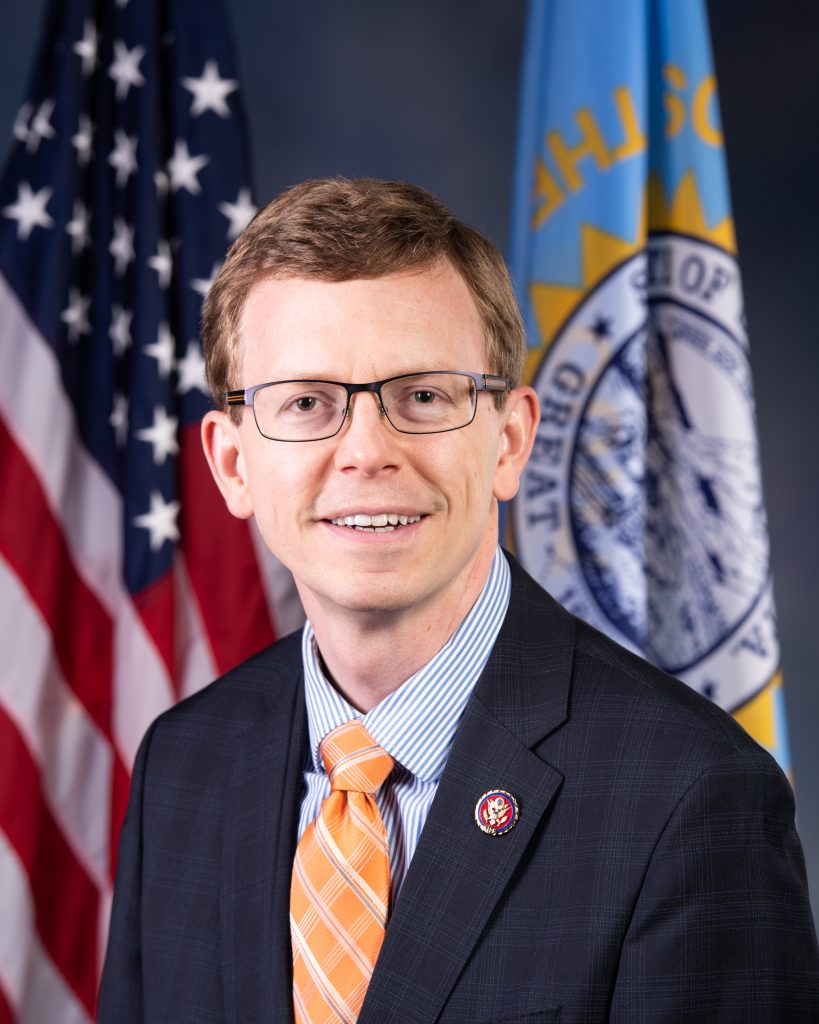
Senator Rounds, together with Senator Thune and Representative Johnson were among a bipartisan group who came together to ensure cattle producers were included in the CARES Act. “Because of COVID-19, we have seen a lot of disruptions to the food environment and it is making so many of us appreciate the hard work that our ag producers are doing on the farm and on the ranch every single day of the year,” says Representative Dusty Johnson. “We are not done working. It is going to be hard for the price to recover until we have beat back COVID-19. What we can do is provide relief.”
On April 16, Johnson and Thune led a bipartisan letter urging U.S. Department of Agriculture (USDA) Secretary Sonny Perdue to take immediate action to assist pork producers and maintain the pork food supply chain.
“It’s critically important that we maintain our pork supply chain to ensure that consumers continue to have access to high-quality pork products in grocery stores and supermarkets throughout the country, especially during the COVID-19 crisis,” Johnson says,
Here at home, the S.D. Department of Agriculture is working to help producers and their employees stay healthy and is making information available to agriculture producers on their website: https://sdda.sd.gov/.

“Although, there is risk when continuing to operate an essential business, there are many steps a business can take to ensure that their supply chains remain strong while taking extra precautions to keep employees healthy,” explains Dusty Oedekoven, State Veterinarian.
In addition to providing guidance, the department is taking extra precautions such as postponing routine dairy plant inspections and limiting meat inspection personnel to one, necessary facility visit each day.
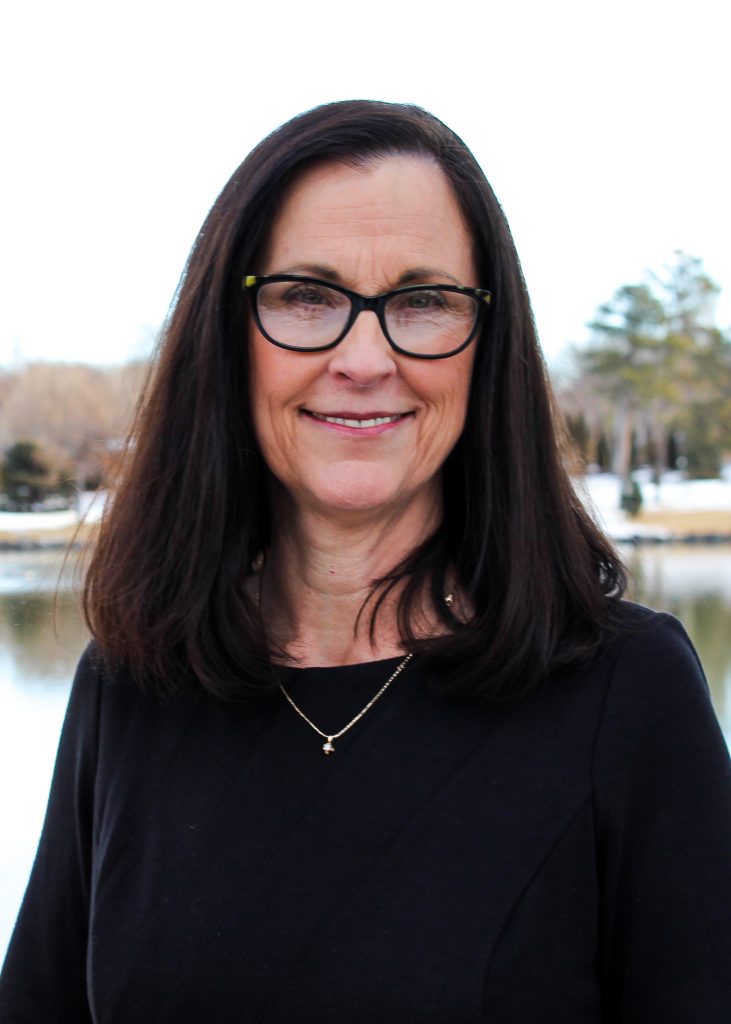
“The nation’s farmers and ranchers are the backbone to the economy and our strong food supply chain,” says Kim Vanneman, S.D. Secretary of Agriculture. “Prevention should be the primary focus, but farmers should also make plans for how they will continue to feed livestock and complete their field work if an employee or family member is impacted by the virus.”
The path forward after COVID-19 is not clear. But Sombke would like to see support for a more localized processing system to bolster marketplace competition and overall food security. “We need to get away from the lowest-cost production system. Not only for the survival of American farmers and ranchers but for security of food for our entire nation.”
A few months ago, Sombke’s idea may have been considered a bit radical. But as COVID disrupts the food chain, infecting workers not only in South Dakota but at plants in Colorado, Iowa, Nebraska, Pennsylvania, Mississippi and elsewhere, out-of-the-box ideas are welcome – if not necessary.
“This type of disruption makes you reevaluate the structure of our food system,” says Matt Diersen, Professor and SDSU Extension Risk & Business Management Specialist. “U.S. agriculture is designed at a big and efficient scale that keeps food costs low and captures a lot of efficiencies during normal times. These are not normal times.”

